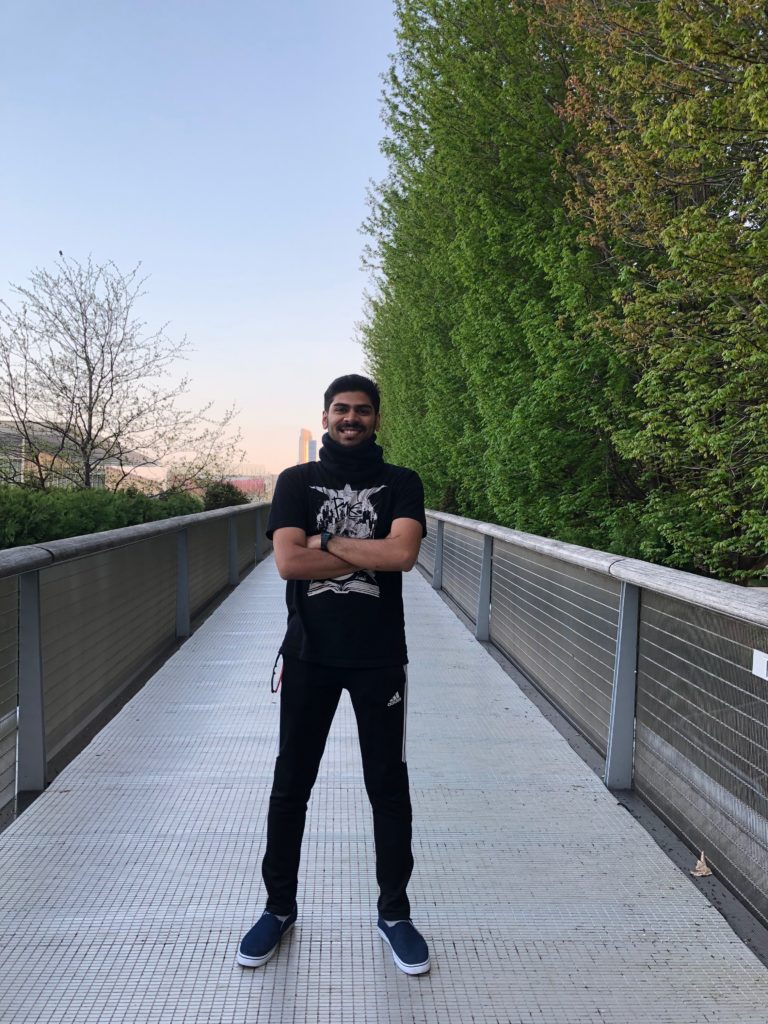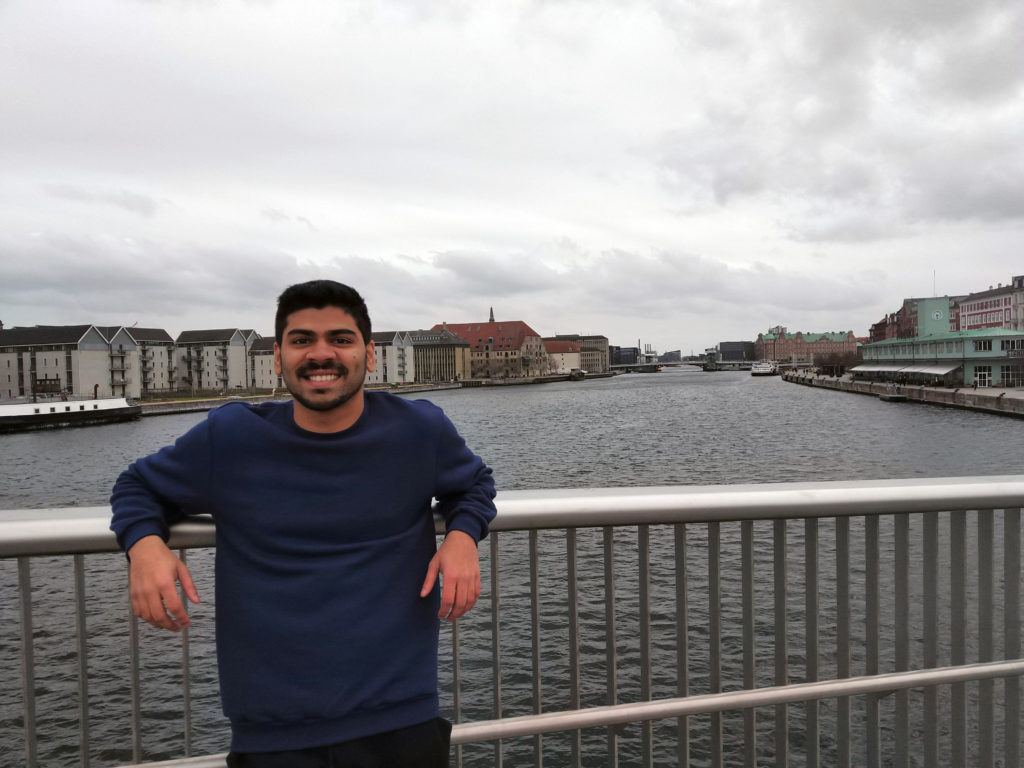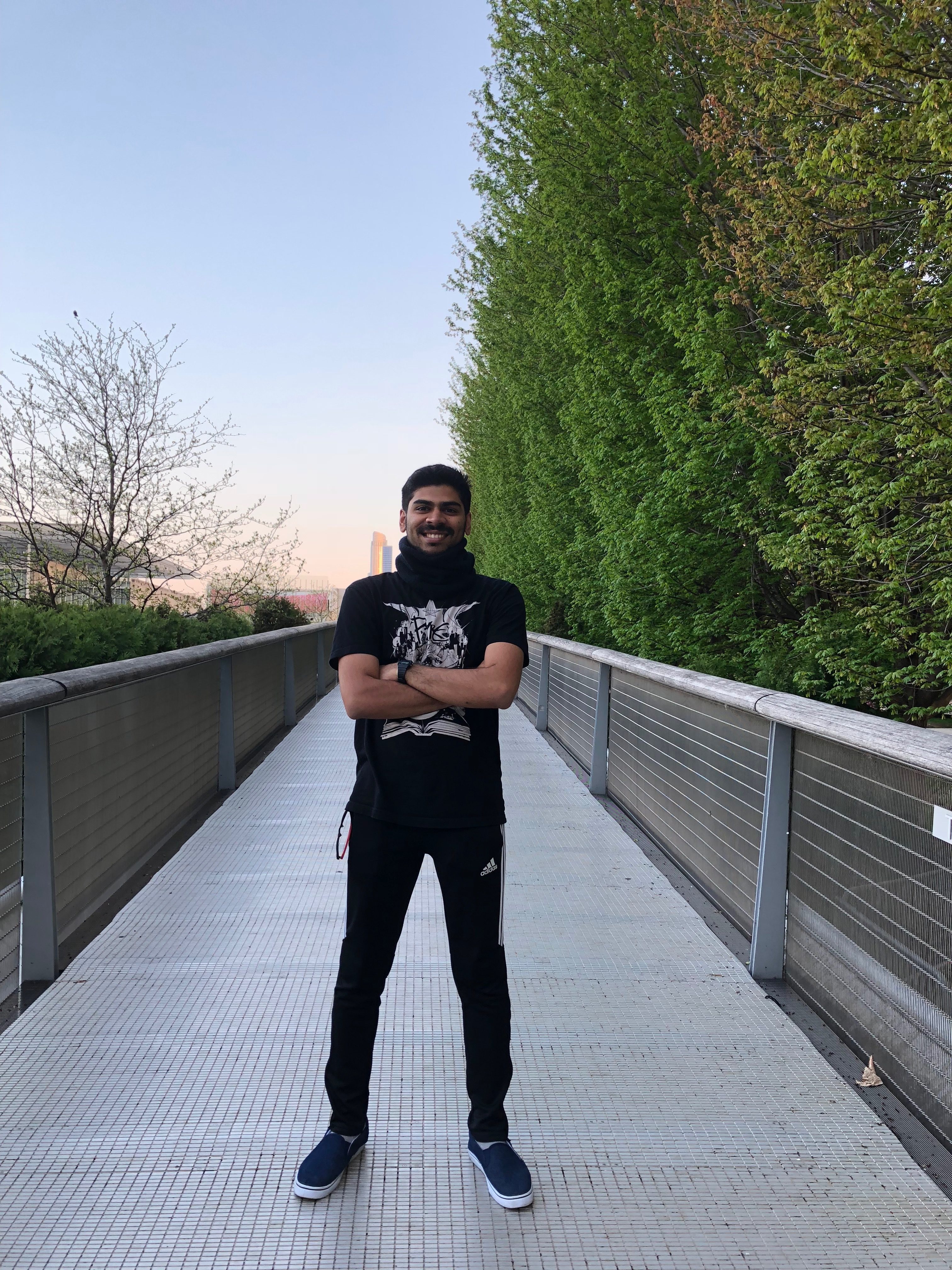
Varun Sriram is a student in CAMD’s Game Science and Design graduate program, currently on co-op at modl.ai, an artificial intelligence studio based in Denmark and run by CAMD Assistant Professor Christoffer Holmgard. We had the chance to catch up with Varun to learn more about his co-op experience as a Games AI Programmer. Read more in the Q&A below.
Tell us about a typical day at modl.ai. What are your responsibilities?
I work as a Games AI Programmer for modl.ai. My greatest responsibility is to implement Machine Learning agents, which playtest different games like a human would, but without any human intervention. The agent takes into consideration every test case and attempts to solve it; just like human testers, but at a faster rate. I spend time developing the agents and tweaking them to perform in the most efficient manner. Along with programming, a typical day involves strategizing with the team to identify appropriate methods for problem solving, reading papers, books, and articles about artificial intelligence, and playing battle of Polytopia with the team. Modl.ai has awesome environment of collaboration and learning.
What has been your favorite project that you’ve worked on thus far in this role?
My favorite project that I’ve worked on is the “flexible playtrace project”. The objective of it is to identify game breaking changes to a game or a level by means of automated playtesting. It is super fun and intriguing as it involves the implementation of high-level logic and various machine-learning algorithms. I am appreciative of Professor Christoffer Holmgard for giving me the opportunity to visit Denmark and meet some of the team members because I was able to learn the materials associated with this project directly from the masters. I was assigned this project from its inception, which means I have the chance to evaluate its progress; something that has been rewarding.

How has the experience been working for a Denmark-based studio like modl.ai? What are some of the highlights and challenges that you’ve faced?
The experience so far has been fantastic. It has been a revelation because it has exposed to me the power of Artificial Intelligence & Machine Learning, as well as my capabilities to comprehend them. I’ve learnt two semester’s worth of content in just two months. Programming neural networks and learning algorithms is complicated. Learning how to successfully implement them with a decent efficiency has been one of the highlights I’ve experienced here. I’d consider my whole journey thus far a challenge because I’m treading in unknown areas of work and academia. This has made the cycle of studying, implementing, and complying to rapid prototyping difficult and tiring, yet extremely rewarding. The icing on the cake is the subtle hints of philosophy present in the content, which I personally enjoy.
How have your previous academic and professional experiences impacted your role as a Games AI Programmer today?
I interned with Lantana Games in the Summer of 2018. Having worked on automated testing and balancing for their game, I feel that a foundation had already been built for this co-op with modl.ai. Additionally, the internship with Lantana Games taught me work ethics and etiquettes, for which I credit Dan Silvers and Brian Wang. Along with that, my evergreen love for strategy games and soccer has been instrumental in helping me solve problems logically; not only at work but also in life.
What do you hope to do with your Game Science and Design degree once you’ve graduated?
After graduation, I would like to try my luck with research organizations like DeepMind, OpenAI, Electronic Arts, or MZ to further expand my knowledge in the Artificial Intelligence paradigm. Otherwise, I’d join Blizzard, 2K games, or any other huge company as an AI programmer.


